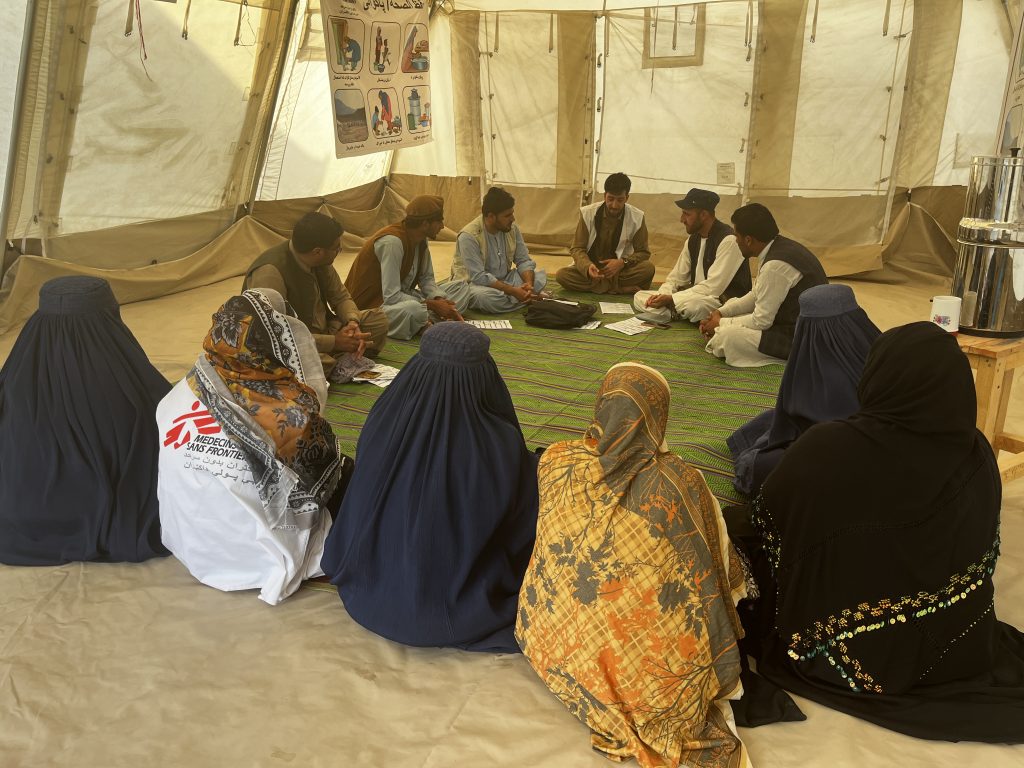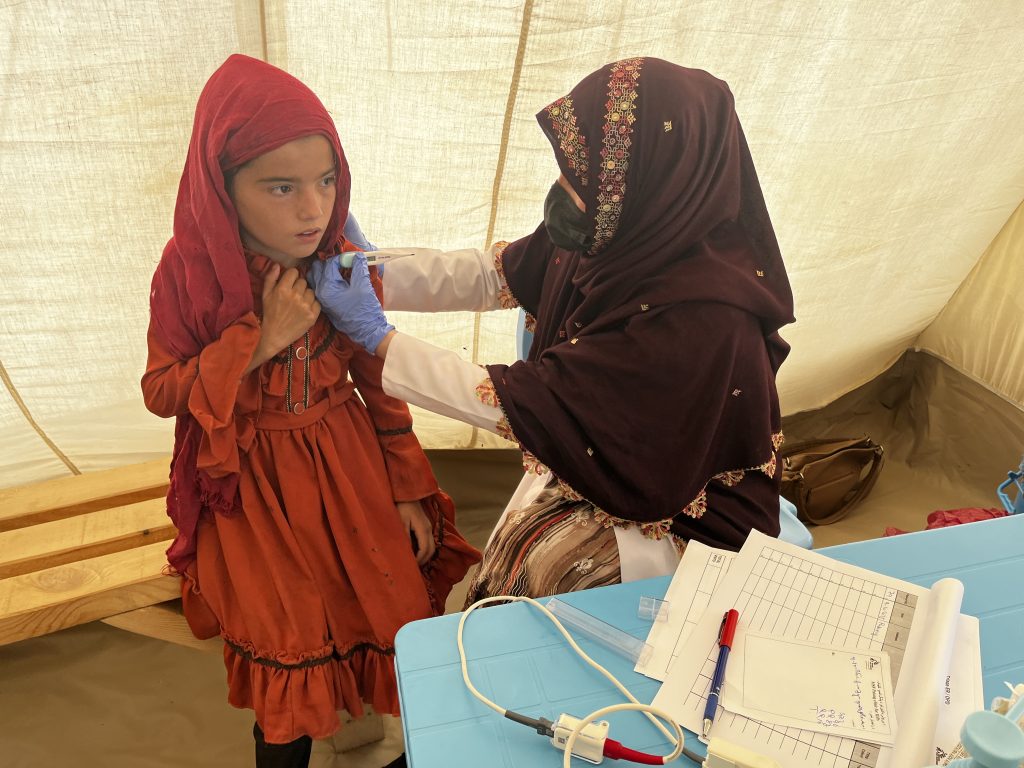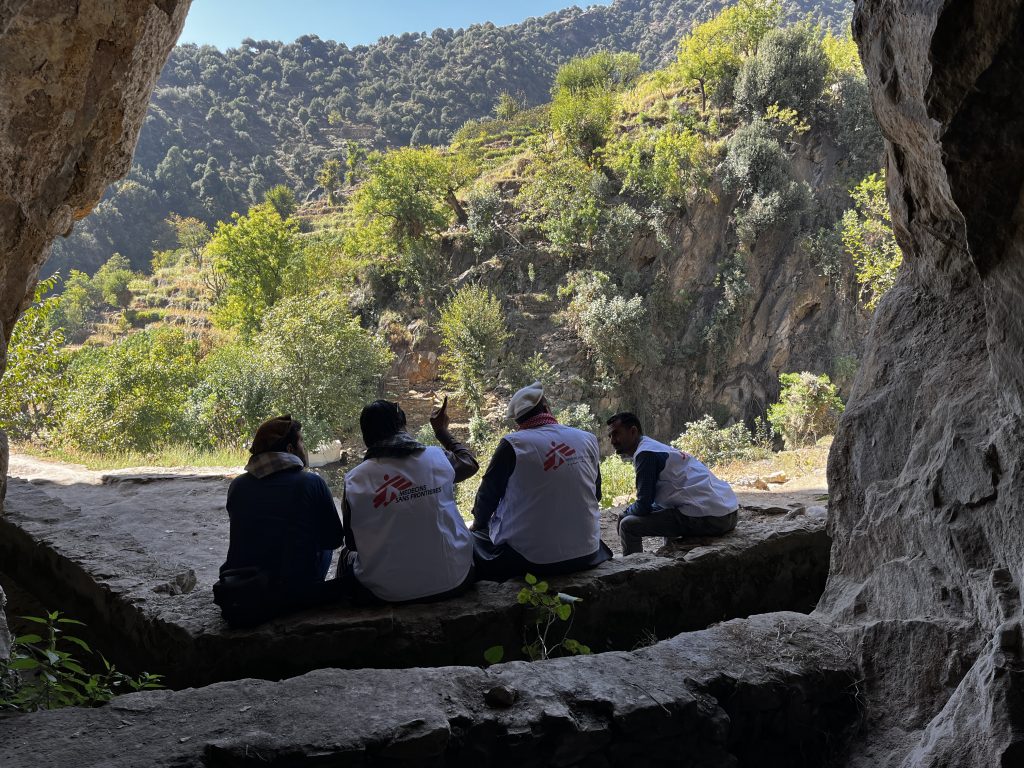“It was between ten to 12 o’clock when my uncle’s wife went to bed. I told her not to lock the door of the house, my senses saying an earthquake might happen. I was sitting on my bed later when there was a boom. I jumped up to grab my two small children and then rocks started to come from every direction. As soon as we stepped out of the door, the room behind collapsed. I couldn’t do anything,” says Kochai, a 40-year-old mother of five who survived the magnitude 6 earthquake that struck eastern Afghanistan on 31 August 2025. Kochai is from Shomash, a remote village in the Nurgal district of Kunar province, close to the earthquake epicentre.
The earthquake was one of the deadliest in Afghanistan in a decade, causing over 2,200 deaths and injuring over 3,000 people across four provinces, including Kunar and Nangarhar. Thousands of survivors have been displaced and are now living in temporary camps.
In the days after the disaster, Médecins Sans Frontières (MSF) sent donations of medical supplies to the three main hospitals in the affected area that were treating the injured. By early-September, MSF began running a basic healthcare clinic open 24 hours a day, and a health post, in Patan Camp in Kunar Province. Since mid-October, a mobile clinic team has also been visiting displaced people living in Ari Gamba camp in Shomash village. The teams offered trauma care in the immediate aftermath, and later outpatient consultations, vaccinations, antenatal and postnatal care, health promotion sessions and individual mental health consultations. Between mid-September and late-October MSF teams treated over 7,500 people, mainly for diarrhoea, upper respiratory tract infections and skin diseases including scabies – a reflection of the hardship of living in the camps. Men, women and children also come to the MSF clinic from other camps and nearby villages.

The aftermath of the earthquake
Patan and Ari Gamba camps are among several temporary settlements for earthquake-affected people in the Nurgal district of Kunar Province, collectively sheltering an estimated 8,000 people who come from the most severely affected villages.

MSF is providing individual counselling sessions and psychosocial support group sessions for the affected population, with nearly 250 people participating per week. Alongside the psychological consequences of losing family, friends, homes and belongings, the survivors of the earthquake will soon be faced with another challenge – winter. The nights are already cool, and soon the temperatures will drop below zero, and in some places, snow will set in.
With the colder weather we are expecting an increase in seasonal illness such as respiratory tract infections like pneumonia, and communicable diseases such as measles and whooping cough. The people living in the camps have only temporary shelters without heating and electricity, and the area is ringed with mountains. “More will need to be done to ensure that survivors can live comfortably until a permanent solution is found or until they can return home,” says Dr Esmatullah Esmat, MSF’s Project Medical Referent in Kunar.













